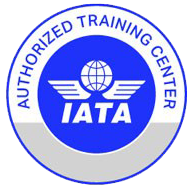Department of Human Excellence
DEPARTMENTS
Soft Skills

Soft skills as a subject helps to mould better human beings to be in a society as model citizens in the international community. Students will be taught various aspects of life skills, values, employability skills and what it means to be a kind human being. Students are guided to conduct their life successfully, in whichever area they occupy. Students are made to do activities that I’m erase their awareness about life skills and value based living. Today’s world is asking for individuals and organisations to rise to the demands of rapid change, and to be transformed by unplanned evolutions. To do this successfully we need the best support system possible, and so comes into the picture- soft skills training. The soft skills training programmes are designed to accomplish a large range of objectives such as: personality development, goal setting, leadership, team building, motivation, decision making, creativity, problem solving, analytical skills, time management, stress management, health and happiness.
Unlike hard skills, which comprise a person’s technical skill set and ability to perform certain functional tasks, soft skills are interpersonal and broadly applicable across job titles and industries. Many soft skills are tied to individuals’ personalities rather than any formal training, and are thus considered more difficult to develop than hard skills. Soft skills are often described in terms of personality traits, such as optimism, integrity and a sense of humor. These skills are also defined by abilities that can be practiced, such as leadership, empathy, communication and sociability.
In soft skills training, various topics like personal and interpersonal skills, etiquettes, body language, emotional intelligence, self-exploration and ten life skills introduced by WHO , were taught.
Number of students benefitted from soft skills training: 705
DETAILS
View DocumentsUnlike hard skills, which comprise a person’s technical skill set and ability to perform certain functional tasks, soft skills are interpersonal and broadly applicable across job titles and industries. Many soft skills are tied to individuals’ personalities rather than any formal training, and are thus considered more difficult to develop than hard skills. Soft skills are often described in terms of personality traits, such as optimism, integrity and a sense of humor. These skills are also defined by abilities that can be practiced, such as leadership, empathy, communication and sociability.
In soft skills training, various topics like personal and interpersonal skills, etiquettes, body language, emotional intelligence, self-exploration and ten life skills introduced by WHO , were taught.
Number of students benefitted from soft skills training: 768
DETAILS
View DocumentsSoft skills is a term often associated with a person’s Emotional Intelligence Quotient, the cluster of personality traits, social graces, communication, language, personal habits, friendliness, managing people, leadership, etc. that characterize relationships with other people. Soft skills, also known as people skills, complement hard skills to enhance an individual’s relationships, job performance and career prospects. It’s often said that hard skills will get you an interview but you need soft skills to get – and keep – the job.
In soft skills training, various topics like personal and interpersonal skills, etiquettes, body language, emotional intelligence, self-exploration and ten life skills introduced by WHO , were taught.
Mr. Joshy P.A., Mr. Xavier Pallipadan, Ms. Rosalind Manjooran and Ms. Sindhu Thomas were the soft skills trainers for the academic year, 2018-19.
DETAILS
View DocumentsNumber of students benefitted from soft skills training: 419
Soft skills is a term often associated with a person’s Emotional Intelligence Quotient, the cluster of personality traits, social graces, communication, language, personal habits, friendliness, managing people, leadership, etc. that characterize relationships with other people. Soft skills, also known as people skills, complement hard skills to enhance an individual’s relationships, job performance and career prospects. It’s often said that hard skills will get you an interview but you need soft skills to get – and keep – the job.
Unlike hard skills, which comprise a person’s technical skill set and ability to perform certain functional tasks, soft skills are interpersonal and broadly applicable across job titles and industries. Many soft skills are tied to individuals’ personalities rather than any formal training, and are thus considered more difficult to develop than hard skills. Soft skills are often described in terms of personality traits, such as optimism, integrity and a sense of humor. These skills are also defined by abilities that can be practiced, such as leadership, empathy, communication and sociability.
In soft skills training, various topics like personal and interpersonal skills, etiquettes, body language, emotional intelligence, self-exploration and ten life skills introduced by WHO , were taught.
The College has efficient teachers to impart soft skills training to the students. Ms. Rosalind Manjooran and Ms. Sindhu Thomas were the soft skills trainer during the academic year, 2019-200.
Number of students benefitted from soft skills training: 419
Soft skills is a term often associated with a person’s Emotional Intelligence Quotient, the cluster of personality traits, social graces, communication, language, personal habits, friendliness, managing people, leadership, etc. that characterize relationships with other people. Soft skills, also known as people skills, complement hard skills to enhance an individual’s relationships, job performance and career prospects. It’s often said that hard skills will get you an interview but you need soft skills to get – and keep – the job.
In soft skills training, various topics like personal and interpersonal skills, etiquettes, body language, emotional intelligence, self-exploration and ten life skills introduced by WHO , were taught.
Ms. Rosalind Manjooran and Ms. Sindhu Thomas were the soft skills trainer during the academic year, 2019-200.
Number of students benefitted from soft skills training: 774







